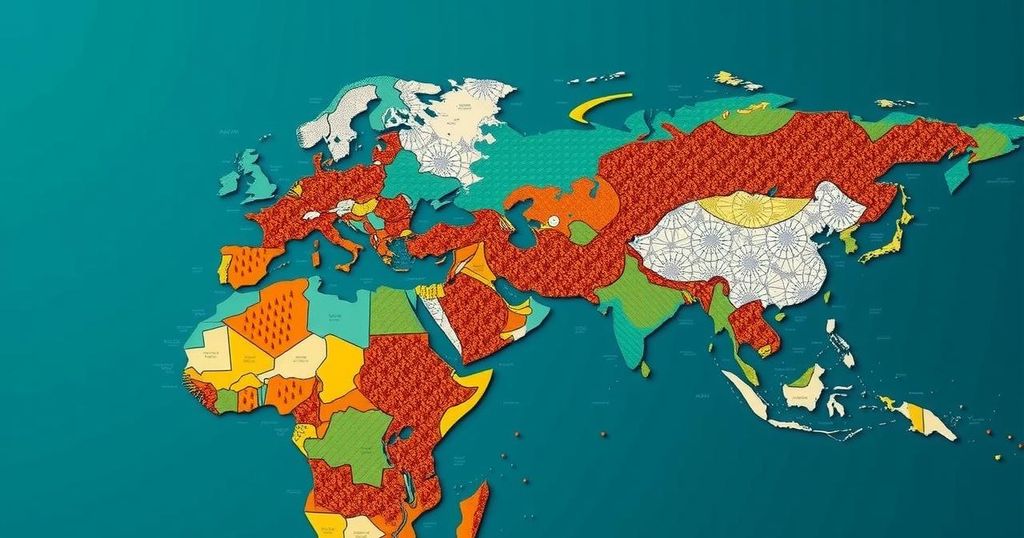The UN climate talks are fraught with tension as developing nations reject a draft proposal for climate financing. Accusations of manipulation from affluent countries exacerbate frustrations, especially among vulnerable regions. Developing nations demand $1.3 trillion to effectively combat climate change, far surpassing current offers. Activists criticize wealthy nations, particularly the United States, for insufficient contributions, as talks struggle to find equitable solutions.
During the ongoing United Nations climate negotiations, tensions escalated as negotiators from both affluent and developing nations attempted to finalize a funding agreement aimed at aiding developing countries in addressing climate change. A draft proposal circulated among delegates, yet it faced substantial backlash, particularly from representatives of African nations and small island states, leading some to withdraw from discussions. The chair of the Least Developed Countries (LDC) group, Evans Njewa, expressed profound dissatisfaction with the draft, emphasizing the need for further dialogue among developing nations before any agreements.
Accusations emerged, suggesting that wealthier nations engaged in a gradual weakening of resolve among developing countries. Delegates from high-risk regions, such as small island states, voiced frustrations regarding perceived neglect during the negotiations. Panama’s chief negotiator, Juan Carlos Monterrey Gomez, lamented the tactics employed by affluent nations, indicating that beleaguered delegates might be pressured into unfavorable compromises due to fatigue and desperation.
As rising tensions continued to characterize the negotiations, climate activists criticized the United States for its insufficient financial contributions, accusing it of neglecting its obligations under international climate agreements. Recent proposals have suggested an increase in annual climate financing to $300 billion by 2035; however, experts argue that over $1 trillion is necessary. The developing nations are seeking $1.3 trillion in total to effectively address the growing impacts of climate change, a figure well beyond current proposals.
Despite the myriad challenges, some countries remained hopeful for a successful outcome, advocating for continued engagement in negotiations. However, critical voices within the developing bloc warned against accepting any agreements that compromise their fundamental requirements for climate financing. The complex dynamics of wealth distribution and climate responsibility tasked negotiators with finding equitable solutions amidst frustrations and divergent priorities.
The United Nations climate talks serve as a critical platform for nations to negotiate commitments and financial support necessary for combating climate change, especially for developing countries. These nations require substantial financial assistance to adapt to adverse climate impacts and transition to sustainable energy sources. Recent negotiations focus on increasing funding commitments, yet developing countries believe that the proposals made thus far are insufficient to meet their significant needs. Indicative of long-standing tensions, these talks reveal the broader struggle of developing nations to secure equitable climate financing amid frustrations over perceived neglect and insufficient commitments from wealthier nations.
In conclusion, the ongoing UN climate negotiations have highlighted the deep rifts between developing and developed nations regarding climate financing, with developing nations expressing dissatisfaction with the current proposals. Tensions are exacerbated by the urgency of addressing climate change impacts, particularly for vulnerable small island states and the Least Developed Countries. As discussions continue, the potential for a meaningful agreement remains uncertain, hinging on the willingness of affluent nations to substantially increase their financial commitments and address the overarching needs of developing countries afflicted by climate change.
Original Source: www.voanews.com






